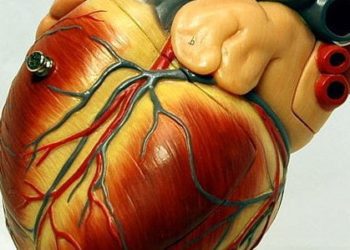Coronary bypass survival benefits shine in high-risk patients
Image: PD
1. For patients with multivessel disease, coronary artery bypass grafting (CABG) conferred a hazard ratio (HR) for death of 0.92, as compared to percutaneous coronary intervention (PCI).
2. The survival benefit of CABG over PCI was especially pronounced among patients with history of peripheral arterial disease, tobacco use, diabetes, and heart failure.
Evidence Rating Level: 2 (Good)
Study Rundown: Randomized trials suggesting that CABG conveys greater mortality benefit than PCI have generally been insufficiently powered to determine how different patient characteristics influence the comparative effectiveness of these interventions. This study affirms that CABG is associated with significantly lower mortality than PCI overall (HR 0.92, 95% CI 0.90 to 0.95), but goes one step further in determining that patients with several characteristics (history of peripheral arterial disease, tobacco use, diabetes, heart failure) can expect an even greater survival benefit from CABG.
The authors argue that using observational data allowed them to assess CABG and PCI comparative effectiveness among large cohorts of diverse patients, rather than being restricted to the healthier-than-average patients typically enrolled in RCTs. The study attempts to minimize treatment selection bias through propensity score matching, but this was limited by information contained within Medicare claims data and subsequent follow-up. As such, the ultimate argument – that comparative effectiveness of CABG and PCI varies by patient characteristics and therefore treatment must be individualized accordingly – would be strengthened by future RCTs powered to analyze overall mortality of the two procedures among patients with diabetes, peripheral arterial disease, and other such characteristics.
Click to read the study in Annals of Internal Medicine
Relevant Reading: Ten-Year Follow-Up Survival of the Medicine, Angioplasty, or Surgery Study (MASS II)
In-Depth [observational treatment comparison study]: The report aimed to determine whether clinical characteristics modify comparative effectiveness of CABG vs PCI. To do so, the authors conducted a propensity score analysis of 105,156 Medicare beneficiaries aged 66 years or older who underwent multivessel CABG vs PCI between 1992 and 2008. The strongest predictors of receiving CABG rather than PCI were calendar year, age, sex, diabetes, cerebrovascular disease, peripheral arterial disease, atrial fibrillation, and region.
Using baseline clinical characteristics, the authors compared matched cohorts of CABG and PCI recipients to determine overall mortality hazard ratios and absolute difference in life-years of survival between the two groups. CABG was associated with lower mortality than PCI (HR 0.92, 95% CI 0.9-0.95), especially among patients with diabetes (HR 0.88), history of tobacco use (0.82), heart failure (0.84), and peripheral arterial disease (0.85). Overall, survival at 5 years was 74.1% after CABG and 71.9% after PCI, with a mean increase in life expectancy from CABG rather than PCI of 0.053 life-year (approximately 3 weeks). However, 41% of patients had better survival after PCI than after CABG; these patients were characterized by the absence of diabetes, heart failure, tobacco use, peripheral vascular disease, and a primary diagnosis of MI on hospitalization.
By Elizabeth Kersten and Andrew Bishara
More from this author: Meta-analysis updates recommendations for C-sections, Early childhood growth improves adult health outcomes in developing countries, Shorter telomere length linked with increased risk of common cold, Breastfeeding associated with lower rates of hypertension, Health information technology improves obesity treatment access and screening, Undervaccination becoming more common, associated with increased admission rates, Silent MIs more common than previously assumed
© 2013 2minutemedicine.com. All rights reserved. No works may be reproduced without written consent from 2minutemedicine.com. Disclaimer: We present factual information directly from peer reviewed medical journals. No post should be construed as medical advice and is not intended as such by the authors or by 2minutemedicine.com. PLEASE SEE A HEALTHCARE PROVIDER IN YOUR AREA IF YOU SEEK MEDICAL ADVICE OF ANY SORT. Content is produced in accordance with fair use copyrights solely and strictly for the purpose of teaching, news and criticism. No benefit, monetary or otherwise, is realized by any participants or the owner of this domain.






